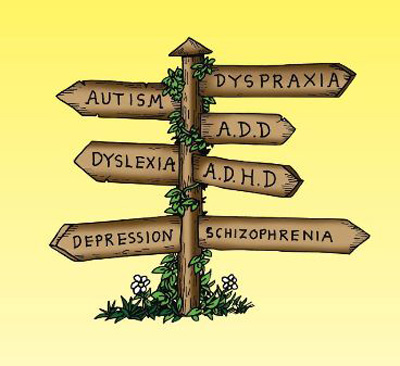With headlines like “Eat Away Autism,” heads are sure to turn and listen up. A diet called the Gut and Psychology Syndrome Diet (GAPS) has made these tall claims that it can heal digestive disorders and consequential issues like autism, depression, and even ADHD. Is this even possible or is this pure quackery just to get desperate parents to buy books?
The creators of the GAPS diet, Sidney Haas, MD and Elaine Gottschall, MSc, would argue that the GAPS diet cured her son of autism. Again, huge claims about a diet. The diet is a derivative of what was called the Specific Carbohydrate Diet (SCD), which is broken into three main categories and intends to create healing for many ailments in the gut, which is claimed to lead to psychological healings, too.
The three main categories are diet, supplements, and detoxification.
The actual diet aspect of GAPS encourages fermented foods, natural fats, and fresh vegetables. Many of the most common foods include eggs, fresh meat, garlic, olive oil, nuts and seeds, fish, and shellfish. People on GAPS are told not to consume dairy.
The supplement aspect of GAPS recommends taking vitamin A, probiotics, omega-3s, digestive enzymes, along with many other minerals and vitamins.
And the final category, detoxification, is referred to as one of the most important as it’s believed to remove toxicity from the gut and allow for healing. Some of the suggested detox methods include juices, elderberry, making sure no chemicals, like cleaning products, are used in the house.
This is an abbreviated description of the GAPS diet. A thorough description can be read on their webpage GAPSDiet.com. However, this diet is supposed to work to heal and remedy serious medical and mental conditions. The GAPS site states that, “[Dr. Campbell-McBride] believes that the link between learning disabilities, the food and drink that we take, and the condition of our digestive system is absolute.”
The site is full of testimonials claiming victory from using the GAPS diet, but as of now there are no scientific studies which back up the effectiveness of GAPS as treatment for these various disorders.
Dr. David Gorski is a surgeon and a writer for Science Blogs. In an article about the GAPS diet and Dr. Campbell-McBride he referred to the people who have claimed that such diets have healed their children of autism. He said, “… autism is a disorder of developmental delay, not developmental stasis; autistic children can and do develop. In fact, a significant minority can even lose the diagnosis of autism or AST by age seven as they develop.”
Dr. Gorski continued by explaining why “treatments” for autism are not necessarily why a child improves.
“If an autistic child improved on a treatment, it would not be unreasonable to conclude that the treatment was beneficial. However, autism is extremely variable. Autistic children can develop, often in spurts punctuated by longer periods of apparent developmental stasis. If one of those spurts happens to occur after a new round of quackery, it’s very easy to conclude that the quackery was responsible.” Clearly he is not a supporter of the GAPS diet.
The doctor raises wonderful points, especially considering the GAPS diet has had no research to prove its efficacy. But is the concept of eating healthy to help alleviate symptoms, even mental symptoms, worthless? Brooke Randolph, our resident Licensed Mental Health Counselor, believes there is some legitimacy in this arena.
Randolph had no specific opinions regarding GAPS, yet stated, “I actually think the theory is sound though that if you avoid foods that irritate your system, even mental and emotional symptoms can decrease.”
Words like autism are scary. Parents of young children are being spooked by every new report that comes out; fearing the strange behavior of their child one day may mean they are dealing with a lifelong disorder the next. Parents just want to do right by their children and when diets like this surface, many are eager to get on board.
Here’s our take-away: There are testimonials, and in theory, the diet can’t hurt. Many have cited symptom improvement by altering their diet, as seen in the GFCF Diet. There’s good reason not to believe it to be a cure though, as there’s no science backing it. In the case of this specific diet, though, I’m rubbed wrong as the website continuously tell readers to “buy the book.” In the question section, you’re asked not to ask a question unless you had first purchased and read the book as most answers are in the book. The site is called a supplement to the book and not intended to give all the information. These elements left me with a bad taste in my mouth about an already controversial topic.
The best advice is, of course, to always consult your own physician first. They know you and your child’s health history and treatment course best and can ensure you get the best “medicine” for improvement.
Also Read:
One Mother’s Experience with the Casein Free Diet for Autism
